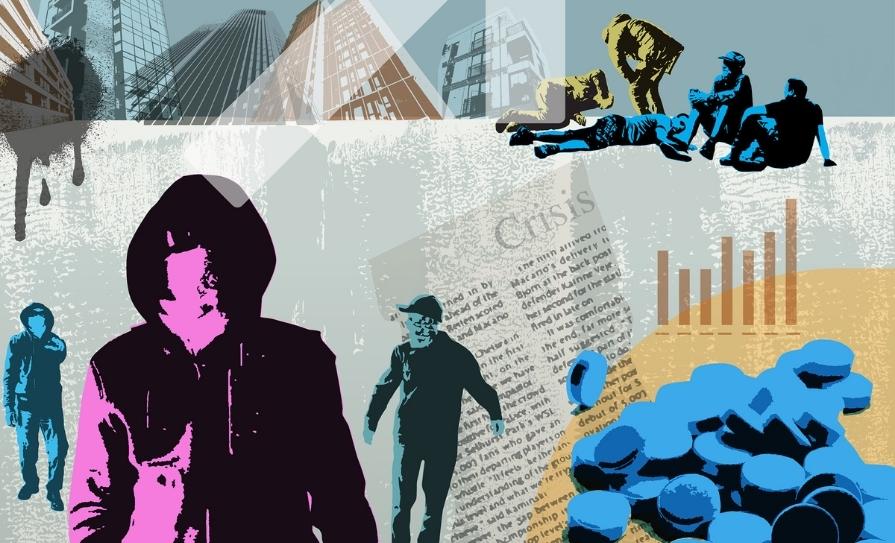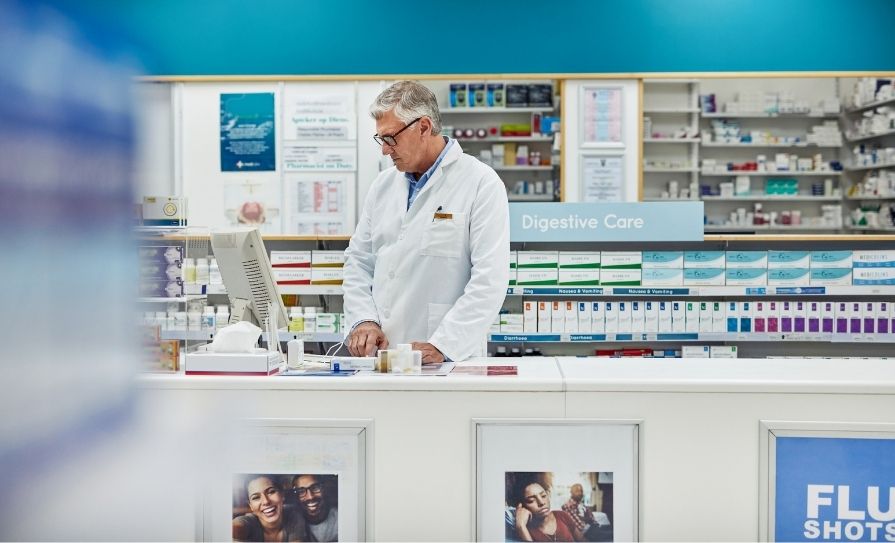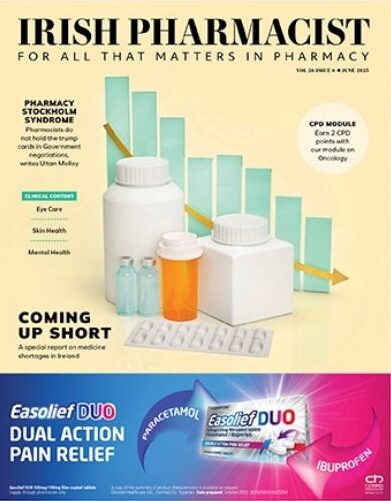How we behave as pharmacists — towards all patients, regardless of their social status — forms a small brick in the wall of social cohesion, writes Fintan Moore
‘If you can talk with crowds and keep your virtue,
Or walk with kings — nor lose the common touch,
If neither foes nor loving friends can hurt you,
If all men count with you, but none too much.’
We often hear it said, and it’s always worth repeating, that pharmacists are the most accessible of all the healthcare professionals. No appointment is necessary to talk to a pharmacist, and we are available for long hours every day we open. What we tend to overlook and underestimate is the importance of the fact that we are equally available to all people, regardless of their background and circumstances. When a person approaches the counter and asks to speak to the pharmacist, it doesn’t matter whether they are a millionaire or a medical card-holder. Either way, they will be seen as soon as possible, and treated with the same level of care.
It is easy for us to miss the value of this equality of access and fairness of treatment, because as pharmacists, we are accustomed to being dealt with respectfully in society. We are privileged enough to be educated to degree level, which means for the most part that we grew up in households that valued education and had the resources or resourcefulness to see that we got through university. If we go into a restaurant or hotel, the staff will usually be nice to us. If we have to talk to customer services in a department store, we will usually be handled politely. As a basic rule of thumb, if we are talking to anybody from an ambulance driver to a zoo-keeper, they are likely to be courteous and helpful. This is not the automatic reaction that a lot of people receive.
We’ve all had the experience of looking after people from ‘the wrong side of the tracks’, and after they leave, you think to yourself that you hope never to run into them in a dark alley. Other patients may be harmless, but poorly educated, or suffering with addiction problems or mental health issues. Nevertheless, you did your best to help them when they were with you. So why does this equality of treatment matter? It’s hard to measure the importance, but the fact that they were respected by you is good for their sense of self-worth and mental health. People who feel valued by others are more likely to treat others well in turn. How we behave as pharmacists forms a small brick in the wall of social cohesion.
There is a valuable health benefit in this as well. If we are respectful in our dealings with people, then we can earn their trust and build a relationship. This can be valuable for people who may have dropped out of school early, had problems socially, and in general have only had negative dealings with ‘authority’ figures. If they see us as people they can talk to, who will take their problems seriously and try to help them, then we are in a position to influence their health for the better.
What Do We Do?
There are times when I wonder just how many jobs I actually do. I don’t do flu vaccinations, but when pharmacists first started giving flu shots, I remember a friend of mine commenting that if he had wanted to give injections, then he “would have been a nurse”. Applying that line of thinking to the daily grind, I could say that:
‘If I wanted to shuffle paper, I would have been an accountant.’
‘If I wanted to check online eligibility, I would have been a civil servant.’
‘If I wanted to chase profit margins, I would have been a business student.’
‘If I wanted to take photos, I would have been a photographer.’
‘If I wanted to sell make-up, I would have been a beautician.’
‘If I wanted to watch shoplifters, I would been a store detective.’
‘If I wanted to repair stuff, I would have been a janitor.’
‘If I wanted to handle staff problems, I would have been in HR.’
‘If I wanted to scan boxes, I would have been a stock-taker.’
‘If I wanted to deal with legal issues, I would have been a rodent.’
And that’s all in a day’s work…
Phasing-Out Decency
Back a couple of years ago, when the HSE started to tighten-up on approvals for phased dispensing, we were told that GPs could apply for ‘Life-long Approval’ for patients who were elderly. In a corruption of language that George Orwell would be impressed by, we now see that ‘Life-long’ does not actually mean life-long. Patients who had been approved for life-long phased dispensing are having their approval cancelled, with no notification of this fact being sent to their pharmacists. The system is so depraved that 80- and 90-year-old patients on multiple medications, and living alone, are losing their approvals. The thought process of the officials responsible seems to be ‘Joe Bloggs may have needed phased dispensing when he was 85, but now that he’s a year older, he should be able to cope just fine with normal dispensing.’ This is morally indefensible, but that doesn’t seem to matter in these austerity times.







